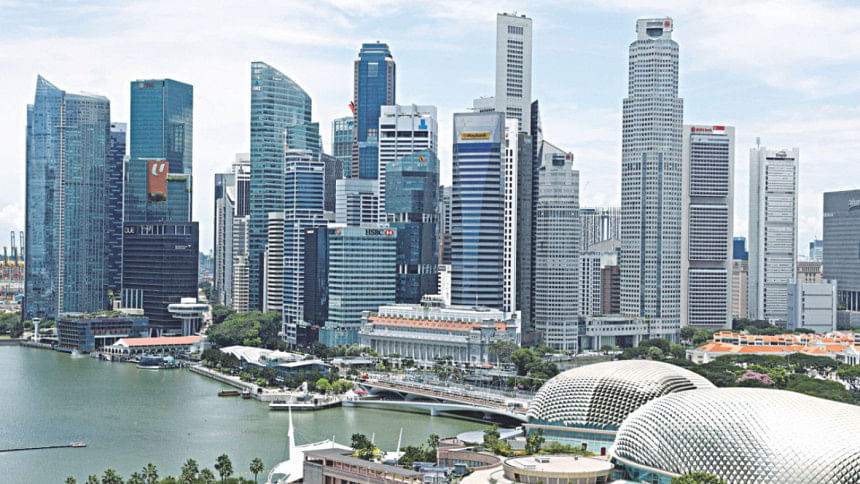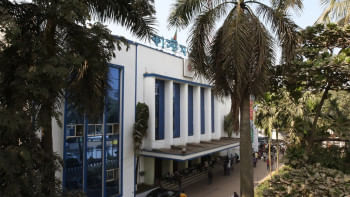It’s time for greater regional collaboration

The Bangladesh economy has taken major strides forward over the last decade. Today, it finds itself on the cusp of transformative growth, ready to make the step up to a middle-income nation. Yet, looming in the backdrop, lies the cross-currents of protectionism and economic nationalism as well as a world economy that is slowly recovering from the shocks of 2008-2009. As we continue our growth journey, facilitating the flow of goods and services, ideas and people across borders will remain a vital part of the development challenge; regional collaboration and inclusive globalisation – central themes of its solution.
For a region as diverse as Asean and South Asia – not least in terms of economic development – regional integration is without a doubt a challenging task. Cooperation and collaboration will require us to find areas of mutual benefit and opportunities, opportunities which we could work together to leverage. These opportunities are not always easy to identify, but in case of Singapore, a key regional player and a financial and logistical centre, these opportunities are evident.
Bangladesh and Singapore have always enjoyed warm bilateral relations. In recent times, we have seen our trade relations assume increasingly greater significance for both Singapore and Bangladesh. Bilateral trade grew from around US$2.1 billion in 2013 to US$2.8 billion last year, according to Bangladesh Bank data. Singapore is also a major source of FDI for Bangladesh. In 2017, net FDI inflow from Singapore into Bangladesh was the second highest of all countries, at around US$200 million, accounting for more than 9 percent of total net FDI inflows.
This major FDI inflow left Singapore with the fourth highest FDI stock in Bangladesh with US$936 million. Singaporean companies have invested in manufacturing, information and communications, oil and gas, services, chemical engineering, textiles, agro-based products, and printing/publishing – but the largest sector by far for Singaporean FDI was power generation. Singapore has invested around US$390 million in Bangladesh power sector, making it one of the largest foreign investors in this sector.
It is easy to see why Singaporean capital and businesses are increasingly considering Bangladesh as an attractive destination. Over the past decade, Bangladesh economy has been one of the top performers in Asia, averaging annual growth of more than 6 percent. Inflation has been moderate and public debt levels are low by world standards. With a median age of 26.7, Bangladesh's young and growing working-age population will endow the country with the benefits of demographic dividend today, and build a strong base for domestic consumption in the coming decades.
Bangladesh's strong and sustained growth is driving tremendous upward mobility. Tens of millions have risen above poverty and are finding themselves in the ranks of the middle class and affluent. This rising middle and affluent class – expected to grow from 12 million to around 34 million by 2025 – coupled with fast-paced urban growth across several cities, will create a voracious demand for a broad variety of consumer goods and services.
With macroeconomic growth, currency stability, and stable geopolitical conditions, Bangladesh's market fundamentals remain strong. The nation is actively working to improve ease of doing business for foreign investors, and possesses a large pool of skilled labour. With per capita GDP set to hit US$2000, the economy is fast approaching a critical inflection point to deliver transformational growth. As the economy prepares for take-off, there are now major opportunities with significant upsides for investors looking to become a part of the nation's success story.
Bangladesh will continue to see large investments from the world's supply chains – initially in the RMG sector, but now across industries. We will continue to welcome investments, particularly in power generation, energy, infrastructure, telecommunications, light engineering, and agro-based industries. The nation's ICT sector, which is globally the second largest contributor of online workers and home to an increasingly sophisticated tech start-up scene, remains an attractive proposition, particularly in business process outsourcing and e-commerce. With an inherently low cost-base, skilled labour force, developing infrastructure, and export incentives, Bangladesh can also prove itself to be a strategic base for sunset industries from more advanced Asean markets that are looking to relocate, and the industries that find themselves in crosshairs of protectionist trade policies.
Bangladesh's infrastructure deficit, which analysts have identified as a barrier in achieving the nation's full economic potential, is also a major opportunity. The current government has undertaken a massive programme to develop infrastructure, which will be key in the nation's journey in reaching the pinnacle of global competitiveness. The investment requirement for infrastructure is likely to be in the range of 7-8 percent of GDP, according to the government's Seventh Five Year Plan. For Bangladesh, securing the resources including funding is crucial towards timely accomplishment of its growth target. For Singapore, well-structured infrastructure assets can prove to be attractive for its investors, and continue to drive Bangladesh's progress.
A recent partnership between International Enterprise (IE) Singapore, Bangladesh's Public Private Partnership Authority (PPPA) and Bangladesh Investment Development Authority (BIDA) will facilitate Singaporean companies' direct participation in Public-Private Partnership (PPP) infrastructure projects in Bangladesh. This partnership will ease the market entry process for Singapore's investors, and is a clear example of where Bangladesh and Singapore can complement each other in their pursuit of economic growth through close and productive collaboration. In order to fully leverage these opportunities, a close partnership between banks, investors, and the government will be critical. Banks such as Standard Chartered, which are vastly experienced in project financing in developing markets, can play a vital role in answering how to facilitate these infrastructure projects starting from scoping out, advisory, structuring, and financing.
Standard Chartered has the proud heritage of being the longest established financial institution in both Singapore and Bangladesh, celebrating our 159th and 113th anniversary in the two markets respectively in 2018. We have been a witness to the incredible energy and vitality driving these economies forward. Closer collaboration between Bangladesh and Singapore will not only add to the prosperity of these nations, but also serve as a marker for what is possible to the region as a whole.
The author is managing director and head of global banking at Standard Chartered Bangladesh.

 For all latest news, follow The Daily Star's Google News channel.
For all latest news, follow The Daily Star's Google News channel. 



Comments